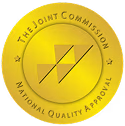Over 19 million Americans suffered from a substance abuse disorder in 2017. 8 million Americans suffered from mental health and substance abuse issues around the same period.
Knowing how to treat these disorders effectively is becoming increasingly important. Fortunately, rehab services are available all over the country.
But this leaves many to ask: should I choose inpatient rehab or outpatient rehab?
While there are similarities between the two, it's important to know the main differences and their pros and cons when you're choosing rehab options. In this article, we're exploring those factors to help you make a decision.
Read on to find out more about the pros and cons of inpatient and outpatient rehab.
What Is Inpatient Rehab?
Inpatient rehab is also known as residential treatment. This is where patients are taken to a clinic or secure location to get rehabilitation services.
Many people choose inpatient rehab to get detoxed when they're first choosing to tackle sobriety. It's often seen as the crucial first step towards full recovery.
Inpatient rehab provides a safe and comfortable space to help patients focus on their recovery. It's designed to reduce withdrawal and often employs staff that helps plan a strategy for sobriety.
This form of rehab usually lasts about 30 days and is best for moderate to severe addiction.
What to Expect From Inpatient Rehab
Inpatient rehab starts with a detox process. This helps flush out any drugs or alcohol, and staff works with you to get you the right treatments.
From there, patients are put in an environment focused solely on recovery. There are individuals, groups, and even family-focused treatments to find the cause of addictions and effectively address them.
Different rehab centers have different programs available to help patients recover. This might be music or art courses, yoga, therapy, or physical activity.
Spiritual, psychological, and clinical staff work around the clock at inpatient rehab centers. Nurses and doctors ensure you're able to recover at your own pace.
What Is Outpatient Rehab?
Outpatient therapy is any treatment that doesn't require stays at a clinic or facility. There's a larger focus on helping addicts handle and cope with their disorders themselves.
It's often used as a way of continuing addiction treatment after an initial inpatient stay. These programs are offered to allow patients to stay on the road to recovery.
Outpatient rehab is popular for milder addictions or for patients who are on the right path to recovering. It's seen as a convenient option for patients who have work or home obligations.
What to Expect From Outpatient Rehab
Many outpatient rehab programs mirror that of inpatient rehab but in a different environment.
Patients often meet with therapists or other professionals at home or in an office. They can undergo individual therapy sessions to find the roots of their own addiction.
They could also participate in group therapy to bounce ideas and stories off other recovering patients. You could even get your family involved along with a therapist for a group session.
Some programs allow for partial hospitalization if you're looking for slightly more intense outpatient services.
So... What Are the Differences?
The most obvious difference between the two forms of rehab is location. Outpatient rehab doesn't require patients to stay at a clinic or recovery facility overnight.
Inpatient rehab focuses on creating an environment where patients can focus solely on recovery and nothing else. The scope of overcoming addiction is different in this context.
Patients might also be in different stages of addiction, depending on which option they choose.
Those taking on inpatient programs are usually moderately or highly addicted to something. They need to book a longer stay at a clinic; otherwise, they're endangering themselves.
Outpatient rehab is for people beginning to recognize their addiction. It's also for people who might've just finished their inpatient stay but want to stay on a steady path.
The way you pay for each option also differs. Because inpatient stays last for a few weeks, they might require a bigger down payment. Outpatient treatments might be more variable and could require separate payments.
Inpatient vs. Outpatient Rehab
With these key differences, patients often ponder which one is better. Finding a definitive answer means looking at the pros and cons of inpatient and outpatient rehab.
Pros of Inpatient Rehab
The biggest benefit of inpatient rehab is that you get 24/7 support from staff. This helps addicts be more accountable with their recovery strategy.
High-level staff also means more effective recovery outcomes. Mental health experts are also common in inpatient clinics. This lets patients deal with co-occurring mental health issues.
But more than anything, inpatient rehab removes patients from harmful or enabling environments. Nothing is distracting them from receiving care and overcoming addiction.
Cons of Inpatient Rehab
The biggest knocks against inpatient rehab are its higher costs and being completely taken out of everyday life.
The higher costs prevent many from taking on inpatient services. Some insurance policies won't cover inpatient rehab, making it even more expensive.
Pros of Outpatient Rehab
Outpatient rehab gives you a much more convenient recovery strategy. You can continue working or being with your family as you overcome addiction.
You won't have to travel or stay in a clinic, which can save you costs. It's also a great supplementary strategy for those who just got done with an inpatient stay.
Dictating your recovery strategy on flexible terms benefits most working-class Americans.
Cons of Outpatient Rehab
There is a higher risk of being enabled by others with outpatient rehab. You're more susceptible to negative environments that might cause relapses.
You're also losing access to valuable support services, like mental health professionals. Outpatient rehab also makes it harder to get medical support outside of counseling.
What Type of Rehab is Best For Me?
Finding the best rehab strategy will ultimately depend on your own specific needs.
If you think your addiction is severe, undergoing inpatient rehab is a good move. For minor addictions that still need attention, outpatient rehab is a great place to start.
Use this guide to help you decide which one is the right option for you. If you're looking for reliable rehab services in the Anaheim area, contact us today!





.png)
